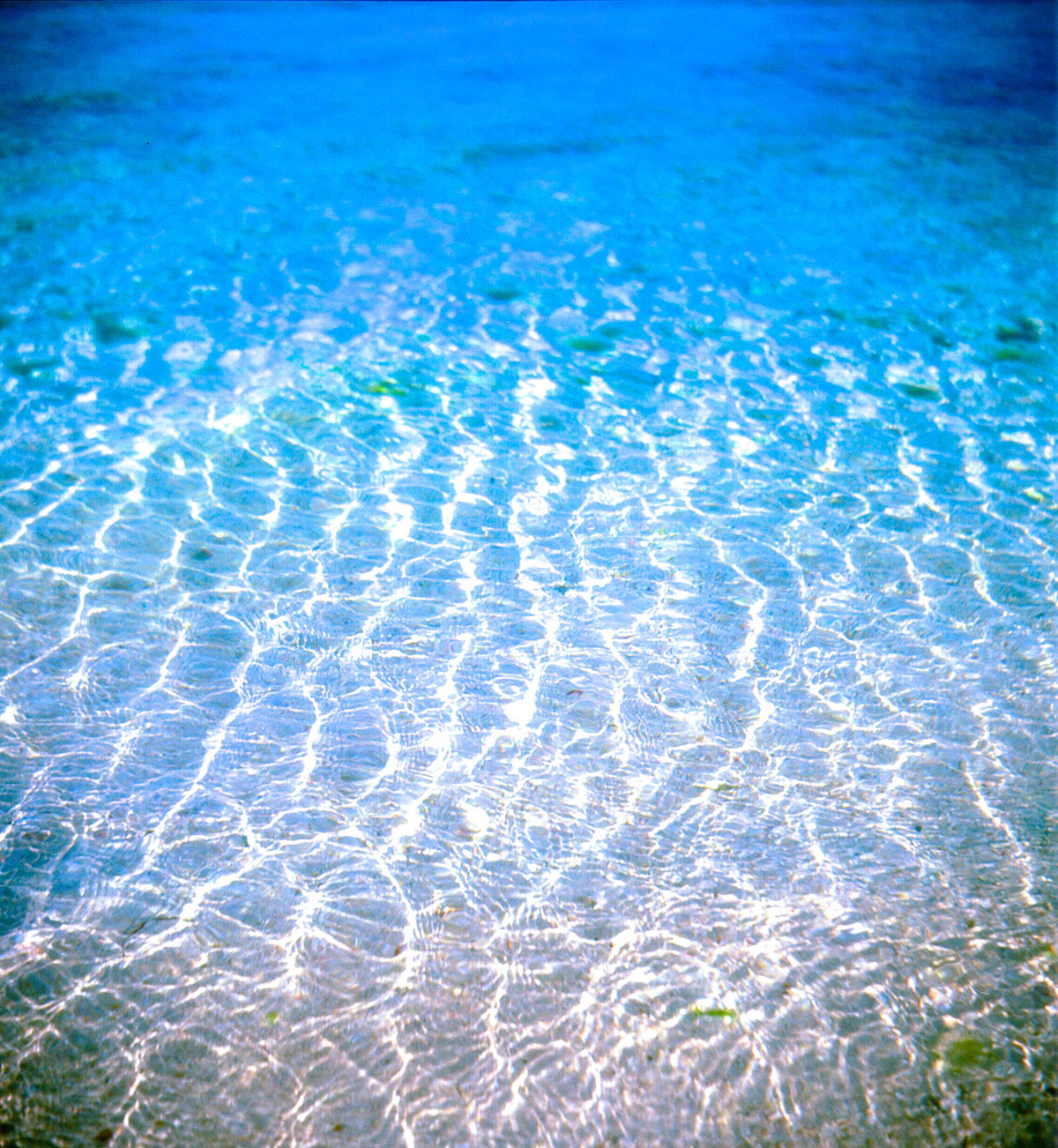OCEAN / 海
「ああ、パラダイス」
ある天気の良い冬の朝に目覚めた時、私の住む南国の海を写したいと、初めて思いました。
裸足で浜辺に立ち広い海を前にしてNIKONを構えました。
夏には挨拶のように毎日泳ぎ、冬には散歩しているいつもの海をいざ撮影しようとするととても難しいと感じました。
常にすがたを変えつづける海に、私も少しすがたを変えてみたくなりました。いつもは使わないロシア製のおもちゃの様なカメラを使う事にしました。このカメラの良い所はファインダーを上からのぞきこむので、被写体にはいつも「どうぞ、よろしく」という具合におじぎの姿勢になることです。常にすがたを変えつづける海に、私も少しすがたを変えてみたくなりました。
非現実的な嘘のような景色、エメラルドグリーンの海、綿菓子のような入道雲。
「これは本当にカメラですか?」
「本当に写るんですか?」
とプラスチックでできたおもちゃの様なカメラを手にして私は問いかけました。
白い砂を素足の裏で感じながら、潮風が私の髪を撫でるのを感じながら、確かに私は声にだしてつぶやいていました、
「ああ、パラダイス」。
2006年 冬
One winter morning I woke up and thought of Paradise. For the first time I wanted to photograph the ocean surrounding the island where I live.
I stood barefoot near the shore, trying to frame the ocean up with my Nikon. I realized how difficult it was to photograph the water I swim in almost every day in summer and take walks along in winter.
I decided to try out an old Russian toy-camera. What I liked about this camera was that its viewfinder is on top; every time I took a picture I had to bend at the waist as if greeting, or bowing before, my subjects. The ocean is constantly moving and changing forms. I wanted to change the way I take photographs as well.
The water's emerald hue and the sky's sugar-candy clouds, though familiar, seemed almost fake. Well, accordingly, the process with the toy camera brought to mind questions like 'Is this a "real" camera?' and 'With this plastic camera, will I be able to make "real" prints?'
I stood barefoot by the shore, feeling the white sand under my heels and the wind in my hair. I whispered, 'Ah...Paradise.'
Winter 2006
